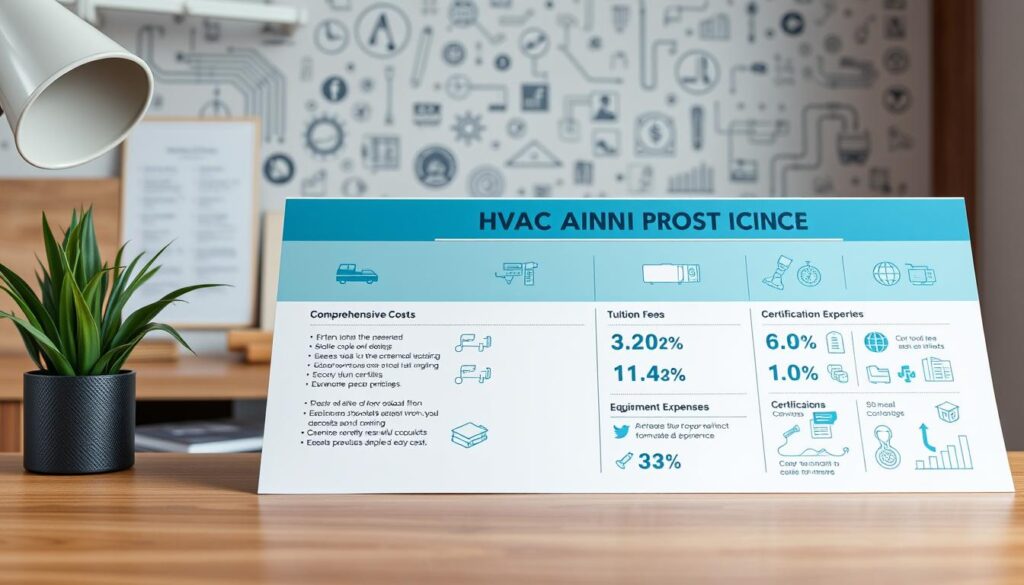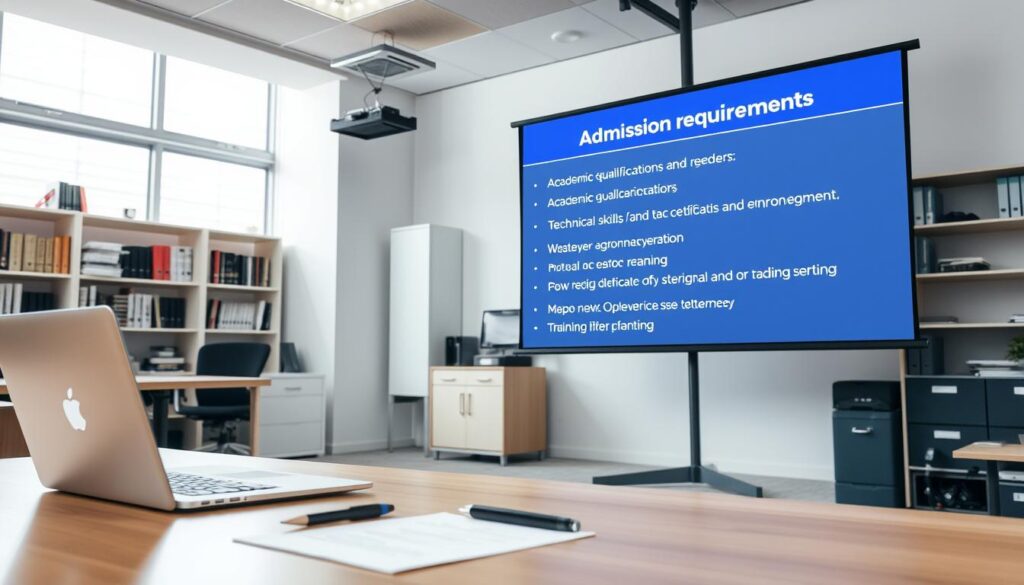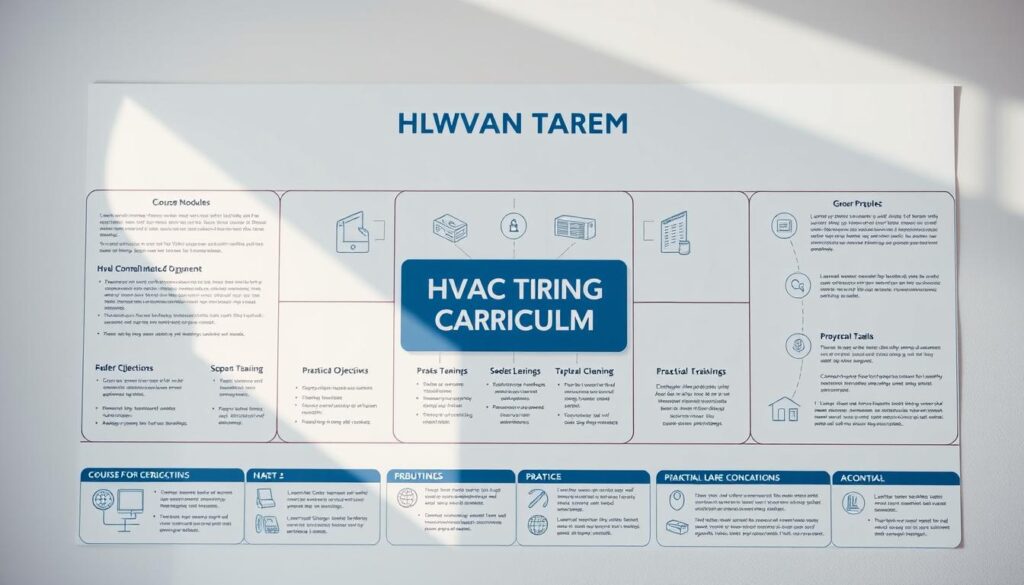Affiliate Disclosure
HVAC Guide Guys is a participant in the Amazon Services LLC Associates Program, an affiliate advertising program designed to provide a means for sites to earn advertising fees by advertising and linking to Amazon.
How Much Is HVAC School Cost? Are you ready to unlock a high-demand career that can transform your future? The world of HVAC training offers exciting opportunities. But, understanding how much is HVAC school cost can feel like navigating a complex maze.

Heating, ventilation, and air conditioning (HVAC) professionals are in constant demand across the United States. Your journey into this dynamic field begins with understanding the financial investment required for quality training.
HVAC training costs vary widely, ranging from affordable certification programs to more expensive associate degree options. Whether you’re seeking a quick entry point or a more in-depth educational path, there’s a training program designed to fit your career goals and budget.
Key Takeaways
- HVAC training costs range from $1,200 to $35,000
- Multiple educational paths exist for aspiring HVAC technicians
- Financial aid and scholarships can help offset training expenses
- Certification programs offer faster, more affordable entry
- Associate degrees provide more in-depth technical education
Table of Contents
Understanding HVAC Training Program Options
Choosing the right HVAC training program is key for your HVAC career. There are different paths to take, each with its own benefits. Your choice will depend on how much time you can commit, the cost, and your career goals.
Exploring HVAC education options requires careful thought. Each program teaches the technical skills needed in this fast-paced field in its own way.
Associate Degree Programs
An associate degree in HVAC technology takes two years. It gives you deep training in:
- Advanced technical skills
- Comprehensive system design
- Detailed theoretical understanding
The cost for associate degrees ranges from $15,000 to $35,000. It’s a big investment in your future.
Certificate Programs
Certificate programs are a quicker way to start your HVAC career. They are known for:
- Shorter duration (6-12 months)
- More affordable tuition
- Focused practical training
These programs cost between $1,200 and $15,000. They’re a cost-effective choice for fast career entry.
Apprenticeship Opportunities
Apprenticeships mix work experience with learning. They let you:
- Earn while you learn
- Gain real-world experience
- Get mentorship from experts
Pro tip: Many employers like candidates with practical experience from apprenticeships.
Explore Our HVAC Shop
Looking for top-rated HVAC tools, parts, and accessories? Visit our shop and find the perfect solution for your needs.
Visit the ShopAverage HVAC School Cost Breakdown
Knowing the cost of your HVAC education is key to planning well. Your investment includes more than tuition. Many expenses add up to the total cost of your training.
When figuring out your hvac apprenticeship costs, consider several important financial parts. These go beyond just tuition fees.
Tuition and Basic Fees
HVAC training costs vary from $1,200 to $35,000, based on the program. Community colleges and technical schools have different prices:
- Certificate programs: $1,200 – $15,000
- Associate degree programs: $15,000 – $35,000
- Online training options: Potentially lower costs
Additional Equipment and Supply Costs
Your HVAC education needs specific tools and materials. Plan for these essential costs:
| Item Category | Estimated Cost |
|---|---|
| Textbooks | $300 – $500 |
| Safety Equipment | $200 – $400 |
| Tools and Kits | $500 – $1,000 |
Certification and Licensing Expenses
Getting certified is a big step in your HVAC career. Here’s what you’ll likely spend on:
- EPA Section 608 Certification: $50 – $100
- State licensing exams: $75 – $150
- Professional certification fees: $100 – $300
“Investing in your HVAC education is investing in your future career success.” – Industry Training Expert
Pro tip: Many schools offer financial aid and payment plans. These help make your HVAC training more affordable.
Explore Our HVAC Shop
Looking for top-rated HVAC tools, parts, and accessories? Visit our shop and find the perfect solution for your needs.
Visit the ShopDuration and Time Investment for HVAC Training
When planning your HVAC career, knowing the time needed for training is key. HVAC training programs vary in length. This affects both your costs and your career path.
Training programs in HVAC range from short certificates to two-year associate degrees. Each has its own benefits for those starting in HVAC.
- Certificate Programs: 6-12 months
- Fastest way to start in HVAC
- Less time spent in class
- Lower costs overall
- Associate Degree Programs: 2 years
- Deeper learning in HVAC
- More technical skills
- More chances for career growth
The length of your program affects your costs and future earnings. Shorter programs are cheaper but might limit your career growth.
| Program Type | Duration | Typical Cost Range |
|---|---|---|
| Certificate Program | 6-12 months | $1,200 – $15,000 |
| Associate Degree | 2 years | $15,000 – $35,000 |
Think about your career goals, budget, and schedule before choosing an HVAC program. Each path leads to a rewarding technical career.
How Much Is HVAC School Cost By Program Type
Knowing the cost of HVAC training is key for those starting their career. The cost of HVAC technician courses varies a lot. This depends on the program you pick, affecting how much you’ll spend on school.
There are two main paths in HVAC training: certificate programs and associate degrees. Each has its own price and career benefits.
Certificate Program Costs
Certificate programs are a cheaper way to start in HVAC. They cost between $1,200 to $15,000. The benefits are:
- They take less time to finish
- They cost less overall
- You can start working sooner
Associate Degree Expenses
Associate degrees give a deeper education but cost more. Prices range from $15,000 to $35,000. The advantages are:
- They offer more technical training
- They open up more career paths
- They can lead to higher starting salaries
“Investing in your HVAC education is investing in your future career success.” – Professional HVAC Instructor
Your choice should match your goals, budget, and career dreams. Look closely at what each program offers to make the best choice for your HVAC training.
Financial Aid and Payment Options for HVAC Training
Starting an HVAC career needs careful planning. Knowing about financial aid and payment plans helps manage costs. This way, you can prepare for your HVAC career without financial stress.
There are many ways to make HVAC training affordable:
- Federal Student Grants
- Specialized HVAC Scholarships
- Employer Tuition Reimbursement
- Federal Student Loans
- Private Student Loans
Government aid is a big help for those starting in HVAC. The Pell Grant helps students who need it most. Military veterans can get extra benefits through the GI Bill.
Many schools offer flexible payment plans. These plans help you:
- Make monthly payments that fit your budget
- Lower the upfront cost
- Keep moving forward in your training
Pro tip: Always compare multiple financing options and consider your long-term career goals when selecting a payment strategy.
Investing in your HVAC education is a strategic decision that can lead to a stable and rewarding career.
Explore Our HVAC Shop
Looking for top-rated HVAC tools, parts, and accessories? Visit our shop and find the perfect solution for your needs.
Visit the ShopRequired Prerequisites and Admission Requirements
To start an HVAC training program, you need to prepare well and meet certain requirements. Knowing these helps you on your way to becoming a certified HVAC pro. It also helps you manage the costs of the program.

Before you can join an HVAC program, you must meet several important criteria. These ensure you’re ready for the technical training and future career success.
Academic Foundations
Most HVAC programs have simple academic needs to help you succeed:
- High school diploma or equivalent (GED)
- Minimum age requirement of 18 years
- Basic math and algebra skills
- Passing entrance assessment tests
Technical Prerequisites
Being technically ready is key to managing costs and completing the program. Important technical requirements include:
- Basic computer literacy
- Understanding of mechanical systems
- Physical fitness for hands-on work
- Strong problem-solving skills
Safety Certifications
Safety is a top priority in HVAC training. Some programs ask for or suggest extra certifications:
| Certification | Purpose | Typical Cost |
|---|---|---|
| OSHA Safety Training | Workplace Safety | $100-$250 |
| First Aid/CPR | Emergency Response | $50-$150 |
| EPA Refrigerant Handling | Environmental Compliance | $150-$300 |
Tip: Always check with specific HVAC programs about their exact prerequisite requirements. This helps plan your educational journey well.
Career Prospects and Return on Investment
Investing in hvac trade school tuition opens up exciting career paths in a booming industry. The HVAC field offers strong job chances with great growth and financial security.
When looking at hvac vocational training costs, it’s key to see the investment’s value. HVAC techs have a bright job market with many job options in different areas:
- Residential installation and maintenance
- Commercial building systems
- Industrial equipment management
- Energy efficiency consulting
The Bureau of Labor Statistics predicts excellent job growth for HVAC pros, with a 5% job increase by 2029. This means about 24,000 new jobs each year, ensuring job stability.
Salaries vary by skill, experience, and location. Newbies can make $35,000 to $45,000 a year. Experienced ones can earn up to $70,000 or more.
“Investing in HVAC training is investing in your future. The skills you learn today can create a lifelong, lucrative career path.” – Industry Expert
Several factors affect your career success:
- Advanced certifications
- Specialized technical skills
- Continuous professional development
- Geographic market demand
By choosing the right HVAC training and growing professionally, you can boost your career and earnings in this exciting field.
Explore Our HVAC Shop
Looking for top-rated HVAC tools, parts, and accessories? Visit our shop and find the perfect solution for your needs.
Visit the ShopProgram Curriculum and Course Structure
HVAC training programs offer a detailed education for a career in heating, ventilation, and air conditioning. Knowing the curriculum helps you understand hvac technician course fees. It also helps you choose the right path for your career goals.

Your HVAC education will teach you important technical knowledge and practical skills. Employers look for these skills in technicians. You’ll learn about complex systems and industry standards in-depth.
Core Technical Subjects
The core curriculum includes key technical subjects that are the base of HVAC knowledge:
- Refrigeration systems and principles
- Electrical system diagnostics
- Heating system design and maintenance
- Air conditioning technologies
- Energy efficiency techniques
Practical Training Components
Hands-on training is key in HVAC certification program fees. It ensures you learn real-world skills. Practical parts often include:
- Lab-based equipment repair simulations
- Installation techniques workshops
- Diagnostic problem-solving exercises
- Safety procedure training
Industry Certifications
Most programs prepare you for important industry certifications. These include EPA Section 608 Certification and NATE (North American Technician Excellence) credentials. These certifications show your expertise and can boost your career.
Investing in a detailed HVAC training program gives you the technical and practical skills to succeed. This is true for this dynamic and vital industry.
Conclusion
Starting an HVAC training program is a smart career move with many paths to choose from. You’ll find costs vary from affordable certificates to full associate degrees. Prices range from $1,200 to $35,000, depending on the program and school.
It’s important to look at all costs, including tuition, equipment, and certification fees. You should also check for financial aid. Community colleges, technical schools, and training centers offer different ways to start your HVAC career. Planning well can help you save money and reach your career goals.
The path you choose in HVAC training will affect your future earnings and job chances. Even though starting costs are high, the long-term benefits are worth it. HVAC technicians are in demand, with good pay and job security in many areas.
Doing your homework is key to finding a good HVAC program. Look at different schools, compare what they offer, and see who they connect with in the industry. By understanding the costs and options, you’ll be set for a fulfilling career in the technical field.
FAQ
How much does HVAC school typically cost?
How much does HVAC school typically cost?
FAQ
How much does HVAC school typically cost?
HVAC school costs vary. Short certificate programs can cost
FAQ
How much does HVAC school typically cost?
HVAC school costs vary. Short certificate programs can cost $1,200. Associate degree programs can cost up to $35,000. The cost depends on the program, school, and certifications included.
Community colleges are often cheaper. Technical schools and private institutions might charge more.
What are the different HVAC training program options?
You can choose from three main options. Certificate programs last 3-6 months and teach basic skills. Associate degree programs take 2 years and offer more in-depth training.
Apprenticeships combine classroom learning with on-the-job training. They usually last 3-5 years.
Are there financial aid options for HVAC training?
Yes, there are many financial aid options. You can get federal student loans, grants, and scholarships. Some employers also offer tuition reimbursement.
Many technical schools have financial aid programs for HVAC students. The Free Application for Federal Student Aid (FAFSA) can help find funding.
What are the prerequisites for entering an HVAC training program?
Most programs need a high school diploma or GED. You should have basic math and science skills. Some programs require a mechanical aptitude test.
Background in technical subjects or experience with tools might be needed. Safety certifications and physical fitness are also important.
How long does HVAC training typically take?
Training time varies. Certificate programs last 3-6 months. Associate degree programs take 2 years.
Apprenticeships can last 3-5 years. The time depends on your program and whether you study full-time or part-time.
What additional expenses should I expect beyond tuition?
You’ll need to budget for textbooks, tools, and safety equipment. You’ll also need to pay for certification exam fees and licensing costs. These expenses can range from $500 to $2,000.
Some schools include tool kits in their tuition. Check what’s included in your program.
What career opportunities are available after HVAC training?
HVAC training opens many doors. You can become a residential or commercial HVAC technician. You can also work as a maintenance technician, installation specialist, or in refrigeration and industrial climate control.
The Bureau of Labor Statistics predicts steady job growth in the HVAC field. Salaries are competitive, and there’s room for advancement.
Is online HVAC training a viable option?
Online learning can help with some theoretical aspects. But, HVAC training often requires hands-on experience. Hybrid programs that mix online and in-person training are becoming more common.
Most certification and licensing requirements need practical skills demonstration. So, in-person training is usually necessary.
,200. Associate degree programs can cost up to ,000. The cost depends on the program, school, and certifications included.
Community colleges are often cheaper. Technical schools and private institutions might charge more.
What are the different HVAC training program options?
You can choose from three main options. Certificate programs last 3-6 months and teach basic skills. Associate degree programs take 2 years and offer more in-depth training.
Apprenticeships combine classroom learning with on-the-job training. They usually last 3-5 years.
Are there financial aid options for HVAC training?
Yes, there are many financial aid options. You can get federal student loans, grants, and scholarships. Some employers also offer tuition reimbursement.
Many technical schools have financial aid programs for HVAC students. The Free Application for Federal Student Aid (FAFSA) can help find funding.
What are the prerequisites for entering an HVAC training program?
Most programs need a high school diploma or GED. You should have basic math and science skills. Some programs require a mechanical aptitude test.
Background in technical subjects or experience with tools might be needed. Safety certifications and physical fitness are also important.
How long does HVAC training typically take?
Training time varies. Certificate programs last 3-6 months. Associate degree programs take 2 years.
Apprenticeships can last 3-5 years. The time depends on your program and whether you study full-time or part-time.
What additional expenses should I expect beyond tuition?
You’ll need to budget for textbooks, tools, and safety equipment. You’ll also need to pay for certification exam fees and licensing costs. These expenses can range from 0 to ,000.
Some schools include tool kits in their tuition. Check what’s included in your program.
What career opportunities are available after HVAC training?
HVAC training opens many doors. You can become a residential or commercial HVAC technician. You can also work as a maintenance technician, installation specialist, or in refrigeration and industrial climate control.
The Bureau of Labor Statistics predicts steady job growth in the HVAC field. Salaries are competitive, and there’s room for advancement.
Is online HVAC training a viable option?
Online learning can help with some theoretical aspects. But, HVAC training often requires hands-on experience. Hybrid programs that mix online and in-person training are becoming more common.
Most certification and licensing requirements need practical skills demonstration. So, in-person training is usually necessary.

